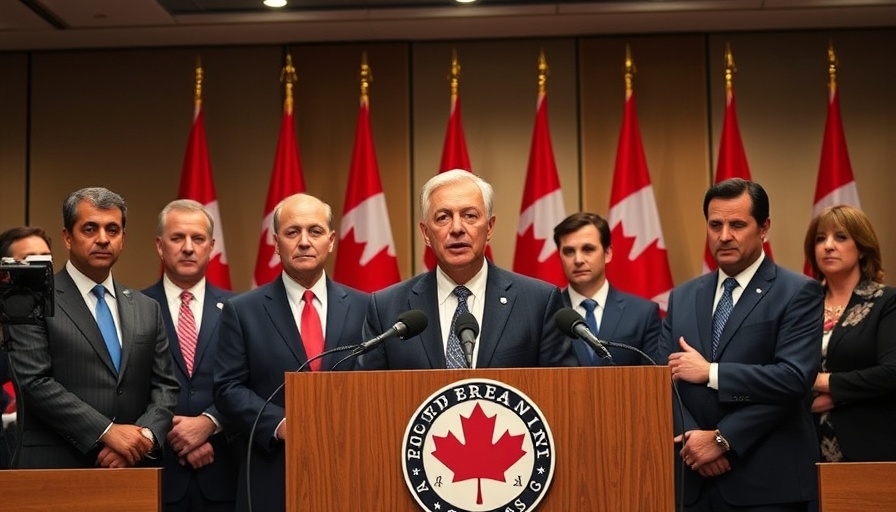
Trump's Tariff Pause: A Strategic Move for U.S.-Canada Relations
In a significant announcement, President Donald Trump has paused the planned imposition of tariffs on Canadian imports for at least 30 days, a move confirmed by Canadian Prime Minister Justin Trudeau. This decision comes on the heels of a similar tariff suspension aimed at Mexico, indicating a potential shift in U.S. trade policy amidst growing diplomatic concerns.
Background and Economic Implications
The original tariff proposals included a steep 25% tax on goods from Canada and Mexico, along with a 10% tariff on Chinese products. Such measures sparked fears of retaliation from Canada, which threatened similar tariffs on $155 billion worth of American goods. The pause reflects a calculated diplomatic effort rather than a purely economic move, as both countries aim to collaborate on urgent issues, particularly the trafficking of fentanyl across borders.
Trudeau's Response and Canada’s Action Plan
Trudeau expressed optimism following his discussions with Trump, noting that Canada is committed to appointing a "Fentanyl Czar" to coordinate efforts to combat this critical health crisis. The Canadian government is also investing $1.3 billion into border security enhancements, including new technology and increased personnel, reinforcing its partnership with the U.S.
Future Outlook: What This Means for Taxpayers and Trade
The suspension of tariffs has immediate implications for taxpayers and businesses reliant on cross-border trade. By avoiding potentially punitive tariffs, both nations are taking steps to stabilize their economies which can ultimately affect consumer prices and availability of goods. As both countries work towards a more cooperative approach, this pause hints at a willingness to negotiate and prioritize public safety over economic isolationism.
The Bigger Picture
This latest development symbolizes the complexities of international relations in an increasingly interconnected world. The handling of trade and tariff discussions, especially concerning crucial issues like the opioid crisis, highlights the importance of dialogue and mutual agreement in diplomacy. For taxpayers, understanding these dynamics is essential, as they can influence market conditions and local economies.
 Add Row
Add Row  Add
Add 




 Add Row
Add Row  Add
Add 

Write A Comment